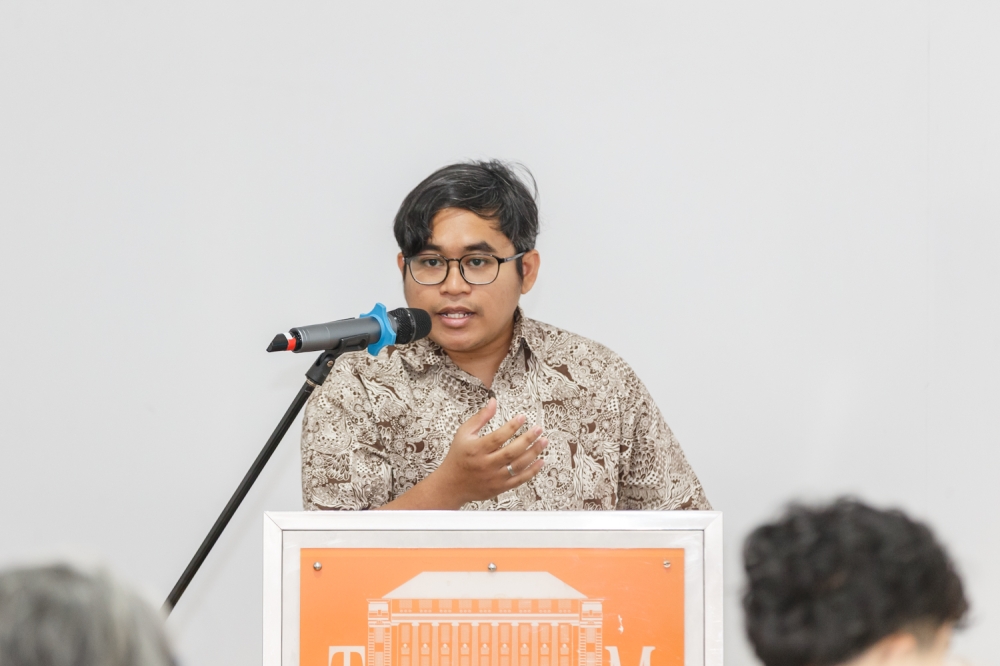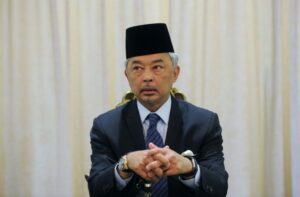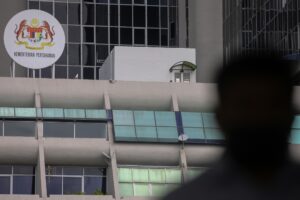- A study by Iman Research found Malay youths’ support for Perikatan Nasional in GE15 was a protest vote against poor governance, not a push for Islamisation.
- The report said Islam was viewed by youths as a moral compass to ensure fairness, honesty, and justice in leadership, rather than rejecting multiculturalism.
- It concluded young Malays demand governance that embodies Islamic values to restore trust, warning disillusionment may continue to drive the “green wave”.
KUALA LUMPUR, Aug 20 — The so-called “green wave” of support for Perikatan Nasional (PN) among Malay youths in the 15th general election (GE15) is not rooted in the community’s support for Islamism or a theocratic state, a study has suggested.
In its report “Orang Kita: The Politics of Acknowledgement and Resentment”, think tank Iman Research said that it was however a form of protest vote against perceived failures of the ruling elites, and the motivation was instead for integrity, fairness, and honesty in the country’s leadership.
“For them, Islam is important because it is an important thing when observing corruption cases, when you see a lot of injustice happening, when you see statistics or bribery being given up and being taken.
“They’re thinking this is all happening under the framework, there is colonialism, this is something adopted from the British and has never even changed so much since,” its research director Aziff Azuddin said when presenting the report here.
Therefore, for the youths, voting for PN was not about rejecting multiculturalism and moving towards Islamisation, but rather using the values of Islam as a guide in governance.

Aziff Azuddin, researcher from IMAN Research, presents the “Orang Kita, Malay Youth Democratic Renewal Post-GE 15: The Politics of Acknowledgment and Resentment” report. August 20, 2024 — Picture by Raymond Manuel
Islam as political compass
The report stated that Islam was understood by Malay youths as a moral and political compass for governance and public life.
“Youths continue to see Islam as central to political identity. This is less about the project of Islamisation, and more about Islam as a stabilising reference point for leadership,” it said.
The report noted participants viewed the Islamic value system as a remedy for the weaknesses of democracy, a political system seen by some as being derived mainly from the West.
“Some participants diagnosed that the current disappointing state of leadership is due to political leadership not following the ‘true’ teachings of Islam.
“There is an unwavering belief that if Islamic principles or Shariah legal and political structures were adequately implemented in the Malaysian fabric, it would significantly improve society en masse,” it said.
The report said some sections of participants also believed that the Shariah legal system must be strengthened and given broader powers, given the current polemics surrounding the perceived limited reach of Shariah legal institutions.
However, other sections of participants desired less obvious integrations, but one that is still driven primarily by Islamic principles.
“There’s no need to use Islamic legal terms or Arabic terminology. We can implement Shariah without calling it Shariah,” they said, as quoted in the report.
Respondents in the study stressed that democracy and governance can be incorporated into the Islamic framework.
Aziff said many of the participants often cited the low-cost “Menu Rahmah”, which was introduced by the late domestic trade and cost of living minister Datuk Seri Salehuddin Ayub, as an example of such Islamic policies they advocate.
“Lots of them spoke about that and said ‘yeah, that is Islamic’, because you’re giving economic justice, you’re elevating those who are feeling pinch, those who are actually in difficulties,” he said.
The report stated that some participants observed the broader application of Islam in governance and politics materialising through policies that empower Islamic programmes and initiatives.

Picture of stall selling Menu Rahmah at Mydin USJ on March 05,2024. — Picture by Miera Zulyana
Protest vote against empty vows
In GE15, PN — which included Islamist party PAS — won 74 out of the 222 federal seats. With no coalition winning the majority, Pakatan Harapan and Barisan Nasional formed the government, along with Gabungan Parti Sarawak and Gabungan Rakyat Sabah.
The report described the so-called “green wave” of GE15 as a “protest vote” driven by resentment over poor governance and unmet promises.
“While Islam was undoubtedly important to the identities of Malay youths, other pressing factors also influenced the political decision-making at the ballot box.
“Malay youths were responding to what they perceived were shortcomings in their everyday experience and what they were consuming online. Deep-rooted class resentment (stemming from challenging financial realities) and anxieties against perceived non-Malay economic dominance became fertile ground for sentiment manipulation by bad-faith political actors,” it said.
The report concluded young Malays are not calling for theocracy, but for leadership that embodies Islamic values to restore trust.
One respondent said: “A leader must not accept bribes, nor give them. If we can truly eradicate corruption, I am confident the country will be at peace.
“But right now, we can see people rising to power who should not be there; cronyism exists. This culture of corruption is what destroys the government.”
Respondents also said they wanted to see Malaysia become a significant regional, if not global, leader.
Many of them believed that this could be achieved if the government focused on equitably developing infrastructure across the country while actively uplifting Malaysians’ economies and livelihoods.
The report warned that unless these grievances are addressed, the disillusionment that drove the ‘green wave’ will continue to shape the political landscape.
The study employed focus group discussions and in-depth interviews with Malay youths in several states between July 2023 and March 2024. It also drew on desk research and a review of existing literature.
Based in Kuala Lumpur, Iman Research describes itself as a think tank which focuses on the domains of protective security, peace-building, and sustainable development.






